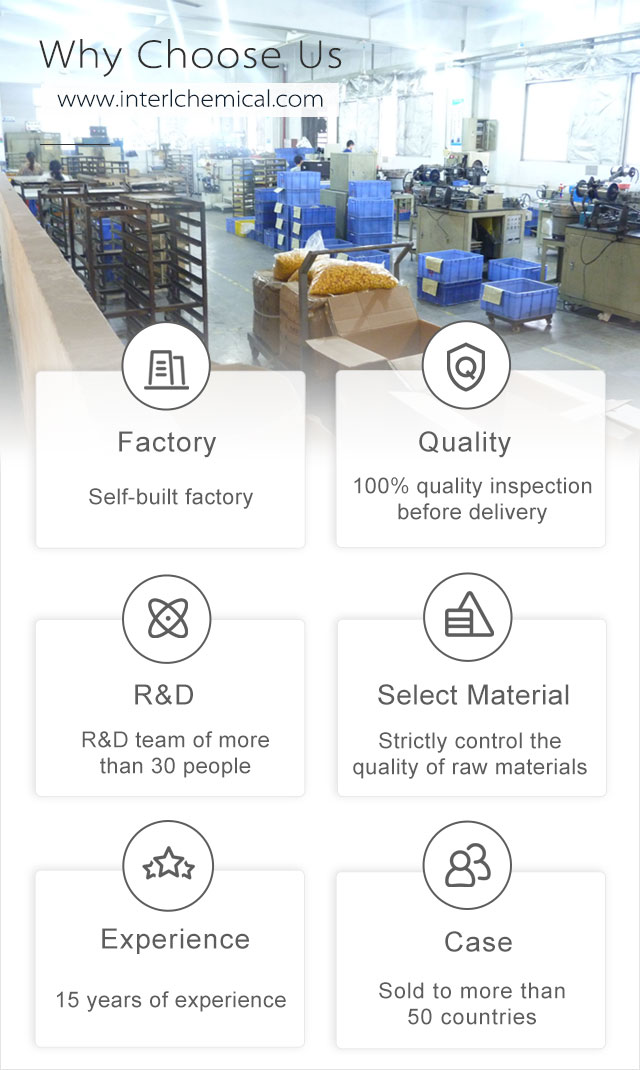





Related Attributes
Product details
Chlormequat Chloride (CCC) is a white crystalline powder at room temperature. Melting point 245℃ (partial decomposition). Soluble in water, the concentration of saturated aqueous solution at room temperature can reach About 80%. Insoluble in benzene; xylene; anhydrous ethanol, soluble in propanol. It has fishy odor and is easily deliquescent. Stable in neutral or slightly acidic medium, can be heated in alkaline medium Decompose. According to China's toxicity classification standard, chlormequat chloride is a low toxicity plant growth regulator. Chlormequat chloride is an excellent plant growth regulator, suitable for cotton, wheat, corn, rice, tobacco, tomato, western medicine, etc, It is suitable for cotton, wheat, corn, rice, tobacco, tomato, tomato and various root crops. Its aqueous solution is stable and corrosive to metal, so it can be stored in glass, high-density plastic, rubber or epoxy-coated metal containers. It can be stored in glass, high-density plastic, rubber or epoxy-coated metal containers. It is rapidly degraded by soil microorganisms.

Pharmacokinetics of Chlormequat Chloride (CCC):
The physiological functions of chlormequat chloride are to control the nutritional growth (i.e. root, stem and leaf growth) and promote the reproductive growth (i.e. flower and fruit growth) of the plant, to shorten the internodes of the plant, to make the plant stout and resistant to collapse, to promote the deepening of leaf color and photosynthesis, and to improve the fruit set, drought resistance, and cold resistance. The physiological functions of the plant are to control nutritional growth (i.e. rootstock and leaf growth), promote reproductive growth (i.e. flower and fruit growth), shorten the internodes of the plant, make the plant stout and resistant to collapse, promote deepening of leaf color and strengthening of photosynthesis, and improve the fruit set rate, drought resistance, cold resistance and salinity resistance. After use, it makes the plant It prevents plant growth and collapse, makes the leaves green, thickens the leaves, increases chlorophyll content and develops the root system. Chlormequat chloride hinders the endogenous gibberellin biosynthesis, thereby retarding cell elongation and causing plant dwarfing. The inhibitory effect of chlormequat chloride on internode elongation can be relieved by external application of gibberellin. Chlormequat chloride has a growth control effect on the crop. It can prevent the seedlings from collapsing, control the growth and increase the tillering, prevent the plant from collapsing, and increase the yield of ears.

Clinical Application of Chlormequat Chloride (CCC):
It can be used in wheat, rice, cotton, tobacco, corn and tomato, etc. It can inhibit cell elongation, but not cell division, make the plant shorter, thicker and greener, make the crop tolerant to drought and flooding, prevent the crop from falling over, resist salinity, prevent cotton from dropping the boll, and make the potato tuber bigger. It is a widely used plant growth regulator. Its main effect is to slowly inhibit the division of the lower apical fine thorax of many crops, resulting in thick stalks, shortened internodes, shorter plants, developed root systems, and wider and thicker leaves, dark green leaves, and no deformation of flowers, leaves and late growth. Chlormequat chloride can be used in most food and cash crops, vegetables, such as corn, rice, tobacco, potatoes, tomatoes, etc., all have good yield increasing effect. Click for more.

Caution:
1, good water and fertilizer conditions, the group has a tendency to grow better when used, while poor ground conditions, not vigorous growth plots, can not use chlormequat chloride.
2, accidentally taking 50% of chlormequat chloride water can cause poisoning, general first aid measures and symptomatic treatment can be applied to the poisoned, muscarinic-like symptoms can be treated with atropine.
3, Chlormequat chloride is slightly toxic to humans and animals, so it should not be stored together with food and stored in a cool and ventilated place.
4. Do not use the drug on cotton or wheat that have no tendency to grow. Cotton should not be dosed too early or too high so as not to suppress the plant excessively or too early and affect normal growth. For wheat Wheat spraying should not be too late, so as not to inhibit growth and affect yield.
5, can be mixed with one sixty-five, leuconazole, but not mixed with alkaline drugs.
Why choose us?

HRK Factory

About Shipping

Pharmaceutical Intermediate manufacturers
©2023 Xi'an Henrikang Biotech Co., Ltd.,